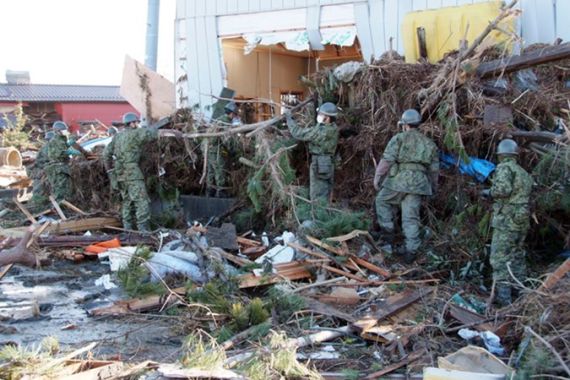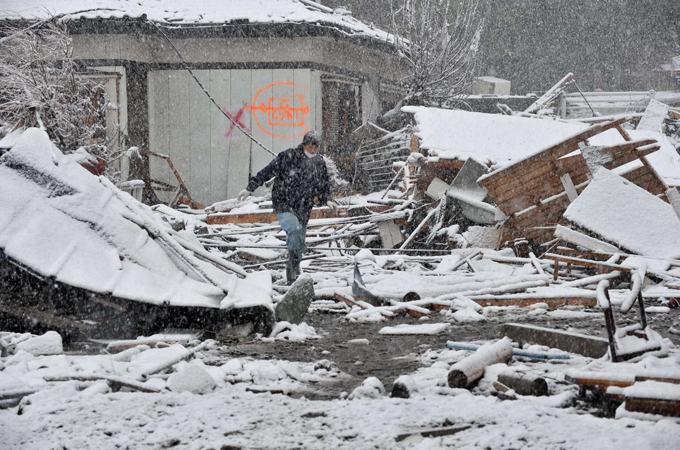Weather plays critical role after Japan quake
The weather in Japan could dictate which areas are likely to suffer most as the nuclear situation worsens.

 |
| As snow falls in Kamaishi, Japan, a survivor picks his way through the rubble [PHOTO AFP/Nicholas KAMM] |
As the nuclear situation worsens in Japan, the weather will dictate which areas are most likely to suffer most.
At the moment, the weather is a bit of a double-edged sword. For the last few days, the winds have been coming down from the Northwest. On one hand this is good news because it is clearing any radiation out to the southeast, away from land. However, it is also bad news, because the wind is dragging in very cold air.
Keep reading
list of 4 itemsWorld’s coral reefs face global bleaching crisis
Why is Germany maintaining economic ties with China?
Australia’s Great Barrier Reef suffers worst bleaching on record
Many of the survivors of these series of disasters now have to cope with snow, night-time temperatures of minus 6 degrees and an added windchill factor that makes the temperatures feel more like minus 13. This is disastrous for those living in emergency shelter, or coping without electricity.
Things will gradually improve. By Saturday the winds should swing round, to be drawn up from the southwest. Temperatures are expected to climb on Saturday to 10C and the snow will turn to rain. The southwesterly wind will still keep any radiation away from land.
Where the radiation goes, as it heads east away from Japan, depends on a number of factors. Winds at different height travel at different speeds and different directions. The prevailing wind at 10km, which is the height that planes fly, is towards the west coast of the United States.
California does not have to be too concerned at the moment, however. The precipitation that has been over the area for the last few days will ensure that the radiation does not travel too high in the atmosphere, and only the areas in the immediate vicinity are at risk.
However, if the skies clear, the pollution could get higher in the atmosphere and potentially travel further afield. If this happens, the severity of the problems would then depend on exactly what materials are being released. Some radioactive particles decay very quickly, so would not still be hazardous by the time they reach the other side of the Pacific, but others decay far slower and may still cause problems for human health.
Fortunately the skies should remain cloudy, with more rain forecast for the next few days. This should keep the problems to the immediate area around Fukushima plant. Also the wind will continue to clear the radiation away from most of the Japanese population. This builds us a small window for us to work in, and hopefully the situation will improve before the weather changes.